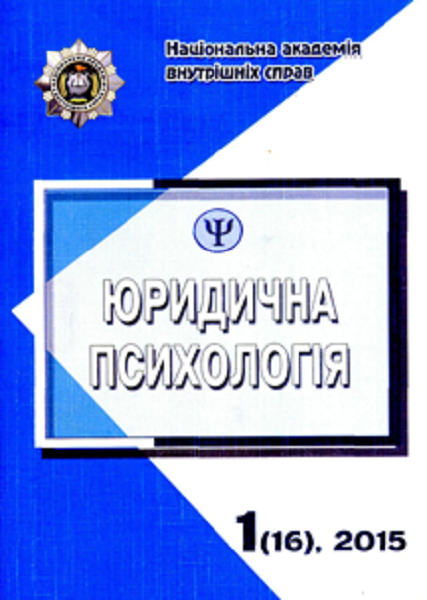Purpose and problems of complex expertise in pre-trial investigation and prosecution of criminal proceedings
Abstract
In this article is analyzed the problems of legal, methodological and organizational sign, which is arising from the appointment and conduct comprehensive reviews.In addition, the article addresses some solutions to the existing problems in this area.
The problems of a legal problems are included comprehensive reviews uncertain status in the criminal process of Ukraine, which, on authors’ opinion, should include serious gaps in the current criminal procedure law and the problem related to the interrogation experts in the court in case of taking comprehensive examination. Author consider that solving of mentioned problems need to amend the Code of Ukraine and adopt the Law of Ukraine «On legal expertise», in which provide all the essential key points relating to the appointment and conduct comprehensive reviews. Obtaining comprehensive forensics relevant procedural status should increase the number of comprehensive reviews and, accordingly, will improve the efficiency of pre-trial investigation and prosecution of criminal proceedings. To the problems of methodical problems are included insufficient amount of specific methodologies for complex forensic examinations. To solve this problem author stresses that the relevant expert institutions of various departments should concentrate their efforts on developing the methodological basis of the variety of legal expertise. To the problems of organizational orientation included lack of awareness of people who perform preliminary investigation of criminal proceedings of the possibility of comprehensive research, as well as some other issues. The author believes that it is necessary develop guidelines on the appointment and conduct forensic examinations of complex and widely adopted these recommendations in law enforcement.
Downloads
Abstract views: 174 PDF Downloads: 979
- Authors reserve the right to authorship of their own work and transfer to the magazine the right of the first publication of this work under the terms of the Creative Commons Attribution License, which allows other persons to freely distribute published work with mandatory reference to authors of the original work and the first publication of an article in this magazine.
- Authors have the right to enter into separate additional agreements on non-exclusive dissemination of the work in the form in which it was published in the journal (for example, to post an article in the institution's repository or to publish as part of a monograph), provided that the link to the first publication of the work in this journal is maintained.
- The journal's policy allows and encourages the posting of articles by authors on the Internet (for example, in electronic storehouses of institutions or on personal websites), both before the submission of this manuscript to the editorial office and during its editorial processing, as this contributes to the creation of a productive scientific discussion and positively affects the efficiency and dynamics of citing the published work.




